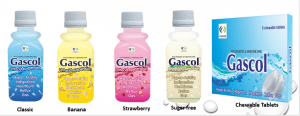Indigestion is an uncertain feeling of discomfort and pain in the upper abdomen and chest including a feeling of fullness and bloating, accompanied by belching and nausea. Although indigestion and heartburn are sometimes interchangeably used and often have the same triggers and probably treatment, heartburn is just one of the symptoms of indigestion.
CAUSES
Indigestion, also known as dyspepsia or stomach upset is a common problem which can be triggered by how you eat and drink; essentially lifestyle. food allergies and poisoning, gastritis and duodenal ulcers, gallstones, late pregnancy, anti-inflammatory drugs (NSAIDs) etc.
While Indigestion could also primarily be a feeling of discomfort that you are full too soon when eating and fullness lasting longer than it should after eating, heartburn is a common feeling of burning in the central part of the chest behind the breastbone and most times are due to backing up of stomach content into the food pipe or oesophagus which could be a symptom of indigestion.
Symptoms
The most common symptoms of Indigestion includes; heartburn, pain in the upper abdomen or chest, loss of appetite, feeling of fullness after eating longer than necessary, nausea, bloating, belching, flatulence and constipation.
Managing and Treating Indigestion
Eat Healthily: symptoms of indigestion can often be relieved with a few lifestyle changes such as eating slower and frequently smaller healthy meals and avoiding late-night snacks and other spicy foods that trigger indigestion. Large meals expand your stomach and increase upward pressure against the oesophageal sphincter.
Exercise: exercise regularly but avoid exercising immediately after you eat. Wait an hour or two to allow digestion and don’t lie down for about two hours after you eat. Gravity helps to keep the stomach juices from backing up into the esophagus and assists the flow of food and digestive juices from the stomach to the intestines.
Avoid Drinking and Smoking: Nicotine relaxes the oesophageal sphincter. Smoking also stimulates the production of stomach acid.
Elevate your head a few inches while you sleep: Lying down flat presses the stomach’s contents against the lower oesophageal sphincter. With the head higher than the stomach, gravity helps reduce this pressure.
Don’t wear belts or clothes that are tight fitting around the waist: Clothing that fits tightly around the abdomen will squeeze the stomach, forcing food up against the lower oesophageal sphincter, and cause food to reflux into the esophagus. Clothing that can cause problems includes tight-fitting belts and slenderizing undergarments.

Use an Over-the-counter Antacid: a common and effective way to manage heartburn is with the use of antacids. Antacids are medicines that neutralize acid in the stomach to relieve pain, indigestion and heartburn. These medicines come in form of a suspension or chewable tablets and are readily available in pharmacies and chemist stores around us.
A very good example of an effective antacid is GASCOL(suspension & chewable tablets)
– GASCOL is a unique blend of Magaldrate (aluminum and magnesium hydroxide complex) and Simethicone.
– GASCOL has a rapid onset of action and a large “acid neutralizing capacity’ (ANC). ANC is a measure of the intensity and duration of pain relief of an antacid. An antacid with a high ANC has a very rapid and sustained pain relief, even in small doses.
– GASCOL provides prolonged antacid action.
– GASCOL Suspension comes in four (4) variants (Classic, Banana flavour, Strawberry flavour and Sugar-free). GASCOL suspension and chewable tablets are indicated for;
• Relief of pain associated with heartburn and gastroesophageal reflux
• Relief of discomfort associated with indigestion, constipation, bloating or flatulence
• Relief of hyperacidity-induced pain associated with gastric and duodenal ulcers, gastritis, peptic esophagitis and hiatal hernia
• Pregnancy-related acid reflux
GASCOL does not cause diarrhoea or constipation and contains a very low amount of sodium. Because of its low sodium content, it is safe for pregnant women, hypertensive patients and people on sodium-restricted diets.
The best time to take GASCOL is between meals and at bedtime or as directed by the medical practitioner.
But because indigestion can be a sign of a more serious condition, if you experience heartburn more than twice a week, weight loss, severe pain, difficulty swallowing, black stools, vomiting with specks of blood or with blood that looks like coffee grounds, shortness of breath, sweating, chest pain in addition to indigestion, then you should consult with your doctor immediately.







